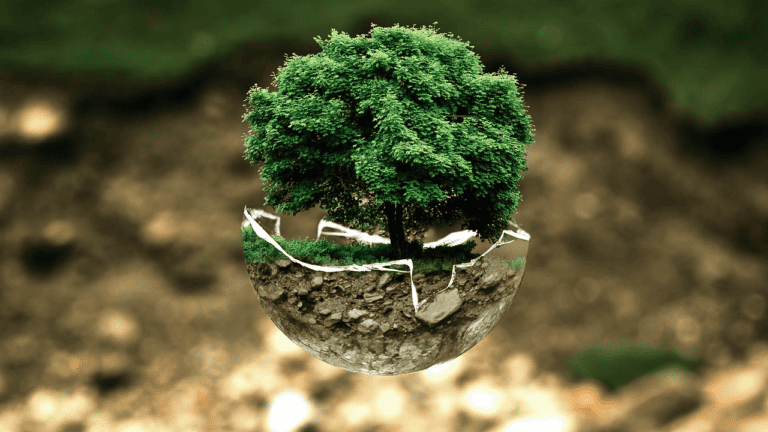Mindfulness in Plain English – Bhante Henepola Gunaratana
Have you ever experienced the feeling of being on autopilot, going through the motions of your day without really being present? It's like driving a familiar route and realizing you can't remember the journey.
Mindfulness in Plain English, penned by Bhante Henepola Gunaratana, offers a powerful antidote to this modern-day affliction. As you begin to explore the principles of mindfulness meditation, you'll uncover a practical and transformative approach to living with greater awareness and presence.
But it doesn't stop there. This timeless wisdom has the potential to touch every aspect of your life, from relationships to work, and even your own inner peace.
Key Takeaways
- Bhante Henepola Gunaratana is a renowned meditation teacher who played a pivotal role in spreading Theravada Buddhism in the United States.
- Mindfulness meditation has numerous benefits for mental and emotional well-being, focus and productivity, regulating emotions, and promoting overall well-being and a positive outlook.
- The core principles of mindfulness include impermanence, non-attachment, compassion, and non-judgment, which enhance mindfulness practice.
- Mindfulness can be applied in daily life to enhance productivity and well-being at work, improve relationships through active listening and empathy, approach challenges with calm and clarity, and integrate mindfulness into daily experiences.
The Life of Bhante Henepola Gunaratana
Bhante Henepola Gunaratana's life exemplifies the transformative power of mindfulness practice. Born in Sri Lanka, Bhante's journey to becoming a renowned meditation teacher began when he was ordained as a novice monk at the age of 12. His dedication to meditation teachings led him to study at the prestigious Vidyodaya University, where he excelled in Buddhist philosophy and languages. Bhante's deep commitment to mindfulness and meditation eventually led him to the United States, where he played a pivotal role in spreading the teachings of Theravada Buddhism.
Through his own experiences and challenges, Bhante has gained profound insights into the human mind and the practice of mindfulness. His journey reflects a life dedicated to the pursuit of wisdom and compassion. As a meditation teacher, Bhante has touched the lives of countless individuals, guiding them towards inner peace and self-discovery. His teachings, as outlined in the influential book 'Mindfulness in Plain English,' continue to inspire and transform the lives of people around the world.
Bhante's journey stands as a testament to the profound impact of mindfulness practice and the potential for personal growth and inner peace.
Understanding Mindfulness Meditation
Now, let's explore the benefits of mindfulness and the various practice techniques associated with mindfulness meditation.
You'll gain insight into how mindfulness can positively impact your well-being and learn practical methods for incorporating mindfulness into your daily life.
This discussion will provide a clear understanding of the principles and applications of mindfulness meditation.
Benefits of Mindfulness
Understanding mindfulness meditation can bring a wide range of benefits to your mental and emotional well-being. By incorporating mindfulness into your life, you can experience:
- Stress reduction: Mindfulness meditation helps in reducing the impact of stress on your mind and body, allowing you to feel more at ease and centered.
- Improved focus: Practicing mindfulness can enhance your ability to concentrate and stay present in the moment, leading to increased productivity and clarity of thought.
- Emotional regulation: Mindfulness empowers you to better understand and manage your emotions, fostering a sense of balance and stability in your daily life.
- Enhanced well-being: Engaging in mindfulness meditation can contribute to an overall sense of contentment and satisfaction, promoting a more positive outlook on life and relationships.
Practice Techniques
To begin practicing mindfulness meditation, start by finding a quiet and comfortable space where you can sit or lie down without distractions. Once you're settled, focus on your breath, paying attention to the inhales and exhales. This is a fundamental mindfulness exercise that helps anchor your awareness in the present moment.
Another practice technique involves body scanning, where you systematically bring attention to different parts of your body, noticing any sensations without judgment.
Walking meditation is also a valuable technique, allowing you to cultivate mindfulness while moving.
Additionally, loving-kindness meditation encourages the development of compassion and empathy towards yourself and others.
These practice techniques can be integrated into your daily routine, gradually enhancing your mindfulness and overall well-being.
Exploring the Core Principles
By understanding the core principles of mindfulness, you can gain valuable insights into its practical applications and transformative potential. Mindfulness is founded on several core principles that serve as the guiding framework for its practice and application. These principles are essential for developing a deeper understanding of mindfulness techniques and fostering a more profound sense of awareness and presence in your daily life.
- Impermanence: Reflect on the transient nature of all things, which can cultivate a greater appreciation for the present moment and reduce attachment to fleeting experiences.
- Non-attachment: Embrace a mindset of non-clinging and non-grasping, allowing for a more liberated and peaceful way of being.
- Compassion: Cultivate a sense of empathy and kindness towards oneself and others, fostering a more harmonious and interconnected existence.
- Non-judgment: Practice observing thoughts and emotions without labeling them as good or bad, thus promoting a more impartial and accepting attitude towards the fluctuations of the mind.
Understanding and embodying these core principles can significantly enhance your mindfulness practice, leading to a more profound sense of well-being and inner peace.
Applying Mindfulness in Daily Life
Now, let's explore how mindfulness can be practically integrated into your daily life, allowing you to embody its core principles in real-time experiences.
When it comes to mindfulness at work, it's essential to infuse your professional life with the same level of awareness and presence that you cultivate during meditation. This means actively listening to colleagues, being fully engaged in tasks, and approaching challenges with a calm and clear mindset. By practicing mindfulness at work, you can enhance your productivity, decision-making, and overall well-being.
In terms of mindful relationships, mindfulness can significantly improve the quality of your interactions with others. It involves being fully present in conversations, empathetically listening to others, and approaching conflicts with a sense of understanding and compassion. By integrating mindfulness into your relationships, you can foster deeper connections, build trust, and navigate interpersonal dynamics with greater ease.
Overcoming Challenges in Practice
Overcoming challenges in mindfulness practice requires a willingness to confront internal resistance and persist in cultivating present-moment awareness. It's natural to encounter obstacles along the path to mindfulness, but it's how you respond to these challenges that ultimately shapes your practice.
Here's how you can navigate the hurdles and continue building resilience:
- Embrace discomfort: Acknowledge that discomfort is a natural part of the process. Rather than pushing it away, allow yourself to sit with it and observe how it manifests in your body and mind.
- Cultivate patience: Understand that progress in mindfulness takes time and consistent effort. Be patient with yourself and your practice, knowing that each moment of awareness, no matter how fleeting, is valuable.
- Practice self-compassion: Be kind to yourself when facing resistance or setbacks. Treat yourself with the same compassion and understanding that you'd offer to a friend in a similar situation.
- Seek support: Don't hesitate to seek guidance from experienced practitioners or teachers. Connecting with others who've faced similar challenges can provide valuable insights and encouragement.
Deepening Your Mindfulness Practice
Now, let's explore ways to deepen your mindfulness practice.
Cultivating present moment awareness can help you stay grounded in the here and now.
Overcoming distractions and obstacles will enable you to maintain your focus and clarity.
Cultivating Present Moment Awareness
To deepen your mindfulness practice, focus on cultivating present moment awareness through intentional and sustained attention. This involves honing your ability to fully engage with the present moment without judgment. Here are some key strategies for cultivating present moment awareness:
- Practice deep breathing: Take a few moments each day to focus on your breath, allowing yourself to fully experience each inhale and exhale.
- Engage your senses: Notice the sights, sounds, smells, tastes, and physical sensations around you, bringing your attention fully into the present moment.
- Release distractions: Let go of thoughts about the past or future, redirecting your attention to the here and now.
- Embrace impermanence: Recognize that each moment is fleeting, fostering a deeper appreciation for the present.
Overcoming Distractions and Obstacles
If you find yourself struggling with distractions and obstacles in your mindfulness practice, refocusing your attention to the present moment can help deepen your practice. Here are some focus techniques and concentration tips to help you minimize distractions and overcome obstacles in your mindfulness practice:
| Focus Techniques | Concentration Tips | Minimizing Distractions |
|---|---|---|
| Deep breathing | Set specific time | Create a dedicated |
| Mindful walking | Choose a quiet | environment |
| Body scan | meditation space | Turn off electronic |
| Visualization | Use a meditation | devices |
| app or timer | Practice self-discipline |
Sharing the Gift of Mindfulness
Consider introducing mindfulness to others by sharing your own experiences and the positive impact it has had on your life. By doing so, you can help others discover the benefits of mindfulness, gifting them the opportunity to cultivate awareness and find inner peace. When sharing your journey with mindfulness, remember to be authentic and open about both the challenges and the rewards.
- Share specific moments when mindfulness helped you navigate difficult emotions, offering hope and encouragement to those facing similar struggles.
- Highlight the ways in which mindfulness has improved your relationships, emphasizing the potential for deeper connections and empathy.
- Express how mindfulness has enhanced your overall well-being, inspiring others to prioritize self-care and mental health.
- Encourage others to start small and be patient with themselves, reminding them that mindfulness is a journey, not a destination.
Your personal experiences can serve as a powerful catalyst for others to embark on their own mindfulness journey. Through your openness and authenticity, you can spark curiosity and inspire others to explore the transformative possibilities of mindfulness.
Conclusion
Now that you've delved into the wisdom of Bhante Henepola Gunaratana, you can embrace mindfulness with a deeper understanding. Just like Bhante, you can incorporate mindfulness into your daily life, overcoming challenges and deepening your practice.
As you continue on this journey, remember his teachings and share the gift of mindfulness with others, spreading peace and compassion wherever you go.







